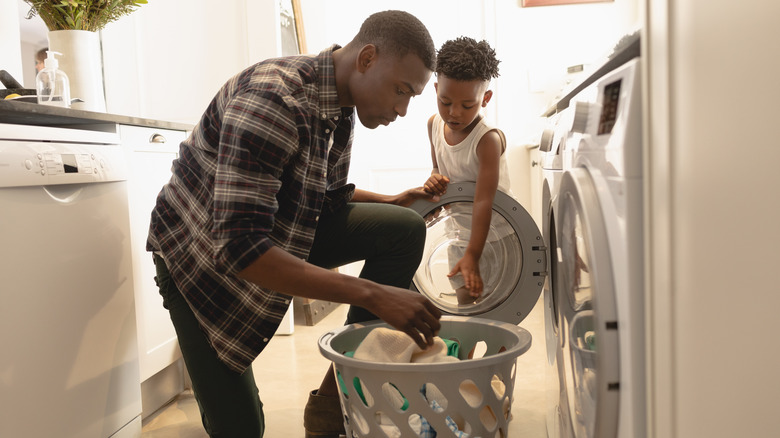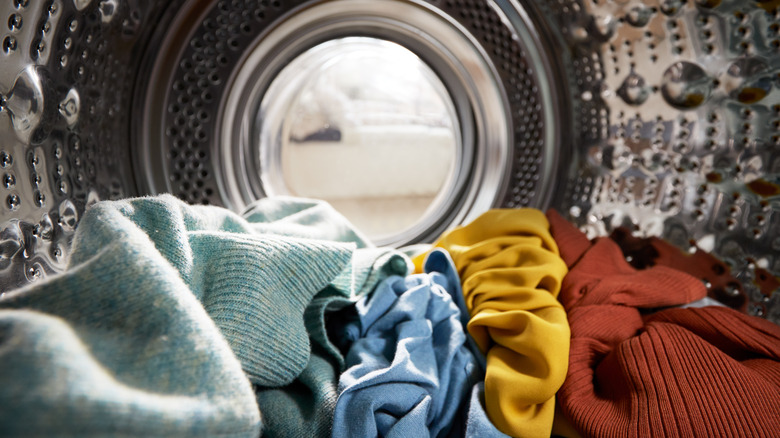How Not Cleaning Your Washing Machine Affects Your Health
It probably seems a little illogical — washing your washing machine. After all, doesn't it clean itself every time we use it? In the same way that you might laugh if someone told you to wash your bar of soap, cleaning your washing machine sounds just as redundant. But as it turns out, if you're not routinely cleaning your washing machine, that favorite outfit of yours may contain unwanted germs.
Our washing machine comes in contact with our dirtiest clothes and household items: workout clothes, sweaty socks, damp bath towels, and drool-stained pillowcases. But the worst offender may be our undergarments. Professor of microbiology at the University of Arizona, Charles Gerba, told ABC News, "There's about a tenth of a gram of poop in the average pair of underwear." How does this impact our washing machine? Gerba states, "If you wash a load of just underwear, there will be about 100 million E. coli in the wash water, and they can be transmitted to the next load of laundry."
And it's not just that next load of laundry that could be teeming with germs. Hilary Metcalf, an infection preventionist at Mission Hospital in Orange County, California, states, "Bacteria tends to lurk in the detergent drawer, rubber seals, and washing drum" (per Healthline).
How to keep your washing machine clean
If you use bleach-free detergent, running a load of laundry in cold water can transmit bacteria to the machine. Thankfully, health experts explain that the bacteria hiding in our washing machines are generally not a cause for concern. Infectious disease physician at North Shore University Hospital in Manhasset, New York, Dr. Bruce Hirsch tells Healthline, "For those of us who use cold or warm water wash and efficient short-drying cycles, some hardy germs will be left on our linens and clothes, [but] the possibility of dangerous, resistant bacteria in our washing machines causing disease is very remote."
However, for those who do wish to regularly clean the washing machine to reduce the chances of bacterial illness, it's recommended that you wash your machine monthly by letting it run on its own with a bleach and water solution. Also, be sure to wipe down any rubber seals. For ongoing maintenance, consider using a peroxide-containing detergent such as Clorox 2 when cleaning your clothes, and remember to always wash your hands after handling wet loads (via ABC News).


